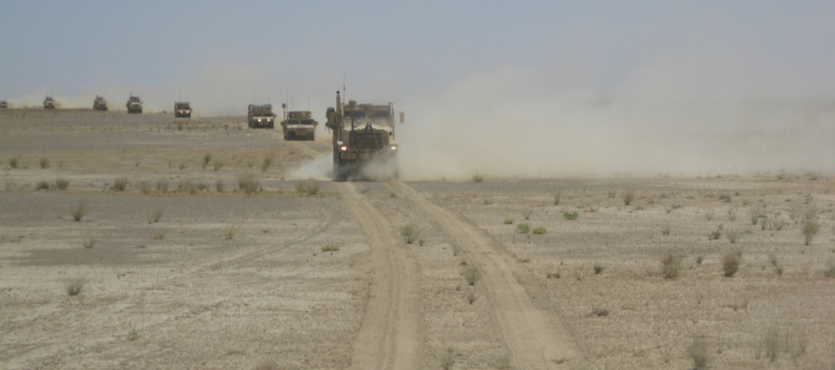Two major Taliban attacks near the Tajikistan border in late January 2020 illustrate the ongoing problems in this war-torn country.
Taliban fighters simultaneously attacked several security checkpoints around Dasht-e Archi in the northern province of Kunduz. Afghan casualties numbered 13 KIAs, 12m WIAs, and three MIAs. Taliban warriors stormed the checkpoints at midnight, and fighting continued for several hours. After seizing a cache of weapons, the Taliban fighters withdrew.
A similar attack occurred a few days earlier in the nearby district of Pul-e Khumri. This attack might have been more disturbing. A turncoat police officer apparently opened a secure door and allowed Taliban fighters to enter the compound. There were 11 KIAs. Not surprisingly, the Taliban is generally strongest in northern Afghanistan.
Fighting drags on despite massive American airstrikes. The U.S. dropped a record number of bombs in Afghanistan during 2019.
How We Got Here
The immediate roots of the current Afghan war probably go back to the late 1990s. After a then-little-known terrorist group attacked American installations in Africa, President Bill Clinton authorized cruise missile strikes against al-Qeda facilities in Afghanistan. Lamentably, the actions did little to dissuade Osama bin Laden and his fellow evildoers, as subsequent events demonstrated.
Happenstance did not lead Saudi dissident bin Laden to Afghanistan. Arguably, unintended consequences of U.S. action did that.
In 1979, the Soviet Union invaded Afghanistan, ostensibly to stabilize the government in Kabul. Islamic fundamentalists, especially in rural areas, greatly resented the intervention of an infidel army. So, they formed a loose confederation of rebels known as the Rebel Alliance, er, mujahedin (freedom fighters).
At first, the rebels were hopelessly outmatched by the powerful Red Army. However, thanks to Stinger anti-aircraft missiles and other U.S. armaments, the tide of battle slowly turned. By 1990, a decaying Soviet Union admitted defeat and withdrew from Afghanistan. U.S. President George H.W. Bush promptly declared victory and ordered the CIA out of Afghanistan.
When the Americans left, the country was in complete turmoil. Since their common enemy was gone, the aforementioned rebel groups began fighting each other for control of the country. One of these groups later became the Taliban, an ultra-conservative group that sheltered bin Laden and other ultra-conservative Muslims. We all know how this story ends.
All these years later, America struggles to get out of Afghanistan. In 2019, a peace accord seemed within reach. But President Donald Trump refused to go forward with the plan, citing concerns about ongoing violence. The recent escalation might put peace plans on hold even longer.
Why are Afghanistan Contractors Important?
Anti-insurgency campaigns like Afghanistan, Iraq, and Vietnam usually have three basic stages. Initially, there is an intense combat phase. At the end comes the rebuilding phase. Somewhere in between is, for lack of a better word, the wind-down phase. That is roughly where the Afghanistan war is now.
Contractors are very important in all three phases. That is especially true of the wind-down phase, because it incorporates elements of the other two parts.
The intense combat phase usually involves efforts to dislodge enemy troops from their positions. So, there is a lot of large-scale fighting. Furthermore, the local people often dislike the invading army. Therefore, soldiers are also public relations officers.
Contractors excel in both these areas. They are flexible enough to react to changing situations. And, they know how to keep a low profile.
Let’s skip ahead to the rebuilding phase. Rebuilding, which should come soon in Afghanistan, has both military and non-military components. Militarily, local armed forces must be trained and equipped. Non-militarily, hospitals, schools, bridges, roads, and pretty much everything else must be rebuilt.
Contractors are well-suited for both these roles. In foreign countries, contracting firms often hire locals to handle translation and other duties. So, contractors overcome both linguistic and cultural barriers during training exercises and other projects. Additionally, contractors come from all walks of life. They know how to complete projects on time and under budget, even in extreme circumstances.
Right now, the Taliban controls about half of Afghanistan. For the most part, the group’s offensive capabilities have been disabled. Taliban troops can still defend themselves well and execute deadly ambushes. But for the most part, Taliban fighters cannot occupy new territory.
So, about half the country is in the wind-down phase, and about half is in the rebuilding phase. Because of this situation, it’s little wonder that President Trump at least considered privatizing the Afghanistan war altogether.
Injury Compensation Available
During all three of these phases, contractors are susceptible to injury. These injuries could be trauma wounds, like gunshot wounds, or occupational diseases, like hearing loss.
Injury treatment in foreign countries, especially remote war zones like Afghanistan, is an expensive proposition. Gunshot and other combat injuries are a good example. First, victims usually receive emergency treatment at a field hospital. Largely to prevent infection, they must be quickly transferred to a larger military hospital. That hospital might be in Germany or Italy. By this time, the medical bills might total tens of thousands of dollars, and doctors have almost literally only stopped the bleeding. There are many miles, and many dollars, to go.
Generally, Defense Base Act insurance companies pay these medical expenses directly. Many victims never see a bill, and they are not responsible for any unpaid charges.
If the insurance company refuses to pay straightaway, attorneys generally send letters of protection to medical providers. These letters guarantee payment when the case is resolved. As a result, victims pay nothing upfront.
As an added bonus, the letters give attorneys negotiating leverage. Frequently, attorneys can lower the charges. That could mean that victims get to keep more of their settlement money.
Contact Barnett, Lerner, Karsen, Frankel & Castro, P.A. to learn more about the DBA’s lost wages benefit.

